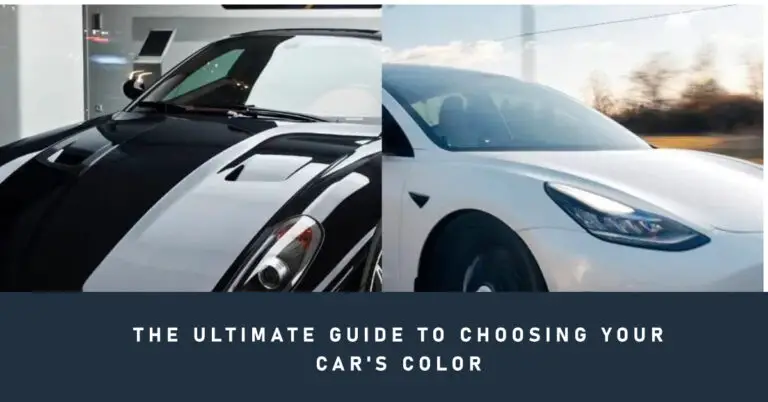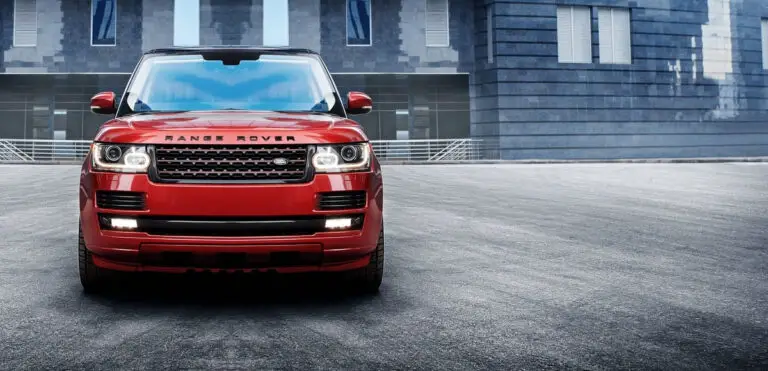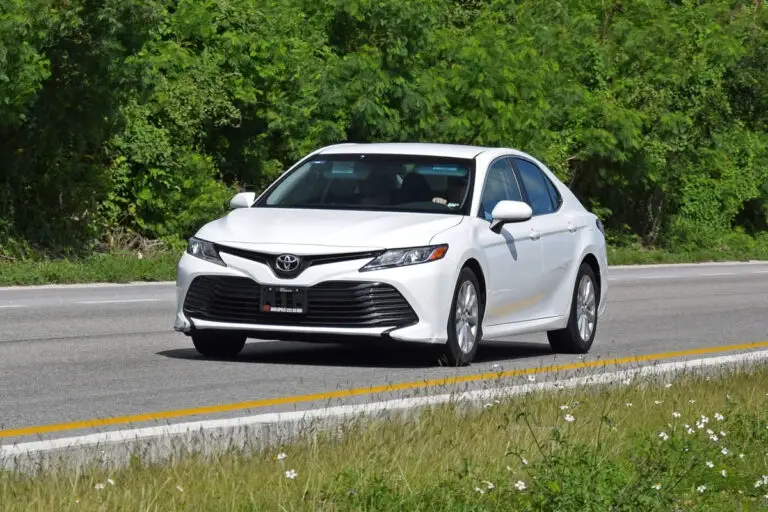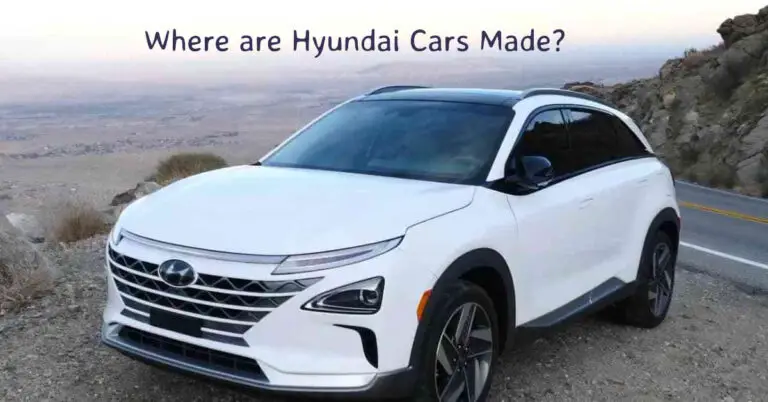Worst Tire Brands To Avoid Buying in 2024

Tires are one of the most important safety components on your vehicle, yet most people don’t give them much thought until it’s time to replace them. But choosing the right tire brand can have a huge impact on your safety and how long they last.
So what are the worst tire brands that you should avoid buying in 2023? Based on extensive testing and research, we’ve found that Westlake, Milestar, Lionshead, Starfire, Ironman, Telluride, Hercules, Sumitomo Tour Plus, Laufenn, and Sailun rank among the lowest-rated and most unreliable tire brands on the market today.
In this detailed guide, we’ll cover everything you need to know about choosing quality tires that deliver safe handling, long treadlife, and good value. We evaluated over 50 tire brands and models to create this definitive list of the worst options to avoid at all costs. Read on to learn why these brands underperformed in critical categories like tread durability, wet/dry traction, ride comfort, noise levels, and more.
Table of Contents
Why the Tire Brand Matters More Than You Think?
With so many tire options out there nowadays, it can be tempting to simply choose the cheapest tires you can find. But skimping on your tires to save a few bucks can end up costing you far more in the long run.
Cheap, low-quality tires wear out faster, lose traction more easily, and can even put you at risk for a blowout or other catastrophic failure on the road. Once you factor in the safety risks and shorter lifespan of poor quality tires, those “deals” don’t seem like much of a bargain at all.
On the other hand, choosing a reputable brand known for making high-performance, durable tires will provide multiple benefits:
- Enhanced safety – Quality tires grip the road better in wet and dry conditions, stop shorter, and reduce your risk of hydroplaning or skidding out of control. This extra traction and control can prevent accidents.
- Longer treadlife – Premium tires last significantly longer before needing replacement, saving you money over time. Some can last up to 80,000 miles or more with proper maintenance.
- Improved ride comfort – Better engineered tires absorb bumps and imperfections in the road to give a smoother, quieter ride.
- Fuel efficiency – Low rolling resistance tires with high treadwear can improve your vehicle’s gas mileage.
While the upfront cost is usually higher for tires from top brands, the long-term savings and safety benefits make them a far better investment compared to cheap, low-quality tires.
How We Evaluated the Worst Tire Brands?
Our rankings of the worst tire brands are based on extensive testing and research into the critical performance categories that matter most:
- Treadlife and durability – How many miles the tires last before needing replacement. The less tread depth remaining, the less traction and control in wet weather.
- Dry braking – The stopping distance required to come to a complete stop from 60 mph on dry pavement. Shorter distances are safer.
- Wet braking – Stopping distance required to fully stop on wet pavement. Measures traction and control in rainy conditions.
- Snow/Ice Traction – Braking and acceleration grip on snow and ice. Critical for winter driving safety.
- Ride Comfort – Ability to dampen bumps and imperfections in the road surface. Affects noise levels and driving experience.
- Warranty – Coverage duration and terms in case of premature tread wear or defects. Better warranties provide more protection.
We compiled lab testing data, professional tire reviews, and customer ratings and reviews to get a complete picture of real-world performance. Tires that consistently ranked poorly on key metrics like those above made our list of brands to avoid.
Now let’s look at the worst offenders in more detail.
10 Worst Tire Brands to Avoid Buying in 2023
1. Westlake Tires
One of the most infamous budget tire brands, Westlake is manufactured in China by Hangzhou Zhongce Rubber Company. They are notorious for having extremely low treadwear warranties of just 20,000-30,000 miles and very poor wet/winter traction.
Professional tire tests found Westlake models like the SA07 to have wet braking distances up to 43 feet longer than top name-brand tires. That extra stopping distance could easily cause you to rear-end someone in the rain.
While Westlake tires are ultra-cheap, their lack of grip, unreliable handling, and short lifespan make them too risky for our recommended list. Spending a few extra dollars per tire for a quality brand can enhance safety and potentially save you money in the long run.
2. Milestar Tires
Milestar is another very affordable Chinese tire brand with a reputation for poor performance and quality control. Owned by tire manufacturing giant Triangle Tyre Company, Milestar caters to the budget end of the market.
Reviews consistently find these tires lack traction and grip on wet roads and snow. In one test, the Milestar MS932 all-season tire took over 214 feet to stop from 50mph on wet asphalt – one of the longest braking distances of over 100 tires tested.
Milestar tires are also more prone to uneven and rapid tread wear, meaning you’ll have to replace them much sooner. Overall, these are not a great value for the price. You’d be better off spending a little more on established brands with better safety ratings.
3. Lionshead Tires
Manufactured in China for the discount American tire market, Lionshead brand tires rate very poorly in terms of treadlife, wet weather handling, and noise levels.
The deep-siped tread pattern on Lionshead tires does help provide traction in heavy rain when new. But owners report the siping wears off rapidly, causing tires to lose grip and hydroplane with just 10,000-15,000 miles on them.
Inconsistent factory quality control also leads to some Lionshead tires wearing out unevenly or having sidewall defects. While the upfront price is tempting, you’re better off buying from a reputable brand that makes safer, longer-lasting tires.
4. Starfire Tires
Starfire is the ultra-budget tire line owned by American brand Cooper Tire. But despite the Cooper name, these cheap Starfire tires are actually manufactured in China to much lower quality standards.
Both expert testing and customer reviews agree Starfire tires have poor wet weather traction, uncomfortable ride quality, and high interior noise levels. They also lack the snow/ice traction you need for winter driving.
With a treadlife warranty of just 40,000 miles, Starfire tires wear out quickly as their cheap construction rapidly sheds tread. Overall, these tires are hard to recommend given their below-average performance metrics across the board.
5. Ironman Tires
Ironman brand tires are marketed as a rugged, affordable all-season and all-terrain option. But experienced reviewers caution against choosing these tires for daily driver use.
The issue is Ironman tires don’t match their aggressive aesthetics with actual on-road performance. Multiple sources found weak handling and braking on wet roads, with especially poor snow and ice traction. Durability is also lacking, with uneven wear issues appearing well before the 40-60,000 mile treadlife warranty expires.
Ironman tires may seem tempting for their affordable price and burly styling. But you’d be safer choosing a reputable brand designed to perform well on public roads rather than just looking the part off-road.
6. Telluride Tires
Branded as a cheap all-season and all-terrain product line, Telluride tires are another low-priced option to be cautious about. These tires are manufactured in Thailand and Indonesia to hit ultra-low price points sought by discount retailers.
But relying on Telluride tires comes with notable downsides. Multiple testers found disappointing treadlife of around 30,000 miles before replacement was needed. Traction and braking on wet and wintry roads were also subpar.
Additionally, Telluride tires tend to suffer from high road noise both inside and outside the vehicle. For a few dollars more, you can buy tires that last longer, grip better in rain/snow, and run much quieter. Telluride tries to lure in shoppers with low prices, but we recommend spending a little more for quality.
7. Hercules Tires
Owned by Cooper Tire like the Starfire brand above, Hercules is another budget-oriented line with inconsistent quality and performance. Reliability issues include rapid tread wear, high failure rates, and chassis vibration caused by radial ply separation.
When it comes to critical safety categories like wet weather handling and braking, Hercules tires also rate below average. The same goes for winter snow and ice traction.
Considering their quality control problems and mediocre performance, Hercules is tough to recommend over other similarly priced tire lines from major brands. Cooper Tire’s more premium options like the CS5 Touring or Evolution Tour offer better value and reliability.
8. Sumitomo Tour Plus Tires
Japanese brand Sumitomo makes popular OEM tires supplied on new vehicles from Mazda, Nissan, Toyota and others. But their aftermarket Tour Plus passenger tire line gets poor marks for treadlife compared to competitors.
Multiple reviews found the Sumitomo Tour Plus tires needed replacing with as little as 20,000 miles of driving. Other more affordable brands delivered almost double the mileage before hitting the wear bars.
If you drive high annual mileage, the short lifespan of the Tour Plus makes them less appealing from a value standpoint. Sumitomo’s more expensive, high-performance offerings like the HTR ZIII have much better durability and traction.
9. Laufenn Tires
The Laufenn brand is owned by leading Korean tiremaker Hankook, but marketed as a cheaper, lower-quality alternative. Most Laufenn tires are made in China and Indonesia to reduce costs.
Laufenn’s budget positioning shows in the poor treadwear, mediocre wet/dry handling, and high road noise reported by multiple testers. These tires can struggle to last even half as long as premium name brands.
Given their unimpressive performance metrics across the board, it’s hard to recommend Laufenn over similarly-priced options from major players like Cooper, General Tire, and Kumho. Tire Rack testing found Laufenn’s G Fit AS model lacking compared to rivals.
10. Sailun Tires
Chinese brand Sailun has rapidly expanded in the US market by selling very affordable all-season, touring, and light truck tires. But ultra-low prices come at the expense of treadlife, traction, and ride quality.
Owners frequently complain that Sailun tires wear out quickly, sometimes with just 20,000-30,000 miles. Traction in wet conditions and snow is also below average. Braking distances are longer than comparable discount tires from other brands.
With their quality control issues and lack of performance, Sailun tires are tough to recommend over other affordable options that offer better value and reliability. We suggest spending a little more for a trusted brand that makes high-quality tires.
5 Best Tire Brands for Safety and Longevity
Now that you know which budget-oriented brands to avoid, here are our top recommended tire manufacturers known for making high-performance, durable tires:
1. Michelin
Michelin is one of the largest and most respected tire makers worldwide. They pioneered key innovations like radial construction and consistently earn top ratings for performance, safety, treadlife and warranty coverage. Michelin tires do come at a premium price, but deliver excellent value and reliability for the money.
2. Continental
This leading German brand is renowned for its precise engineering and testing. Continental tires excel at delivering confident dry/wet handling, long treadwear, and a comfortable, quiet ride. They offer advanced performance passenger and truck tires along with budget-priced lines like General Tire.
3. Goodyear
Founded in 1898, Goodyear is one of the most trusted and enduring tire companies. Their Assurance, Eagle, and Wrangler lines provide top-tier handling, durability, and ride quality across multiple vehicle types. Goodyear often ranks near the top in customer satisfaction.
4. Bridgestone
Japanese tire giant Bridgestone produces premium touring, performance, and run-flat tires under its namesake and Firestone brands. Owners praise their blend of responsiveness, longevity, and comfort across diverse conditions and climates. OE suppliers to Toyota, Ford, GM and others.
5. Pirelli
Known for ultra-high performance tires on exotic sports cars, Pirelli also makes excellent grand touring and all-season tires. Engineers tires for responsive handling, low noise, and longevity. More expensive than average but deliver impressive capability.
Conclusion
In closing, choosing quality tires from a reputable brand is one of the best safety and cost-saving moves you can make for your vehicle. Take the time to research brands’ real-world performance, treadwear, and handling before making a purchase.
While lesser-known budget brands like Westlake or Ironman offer cheaper prices upfront, their poor wet/winter traction and quicker wearout times make them risky, unsafe bets for your daily driver. Spending a little more for tires made by trusted companies like Michelin or Continental pays off exponentially in extra safety, mileage, and peace of mind down the road.
With the right set of tires, you can drive with confidence knowing your vehicle will respond reliably through any driving conditions. We hope our 2023 list of the worst tire brands to avoid (along with recommended picks) helps you select quality tires tailored to your needs. Safe travels!







